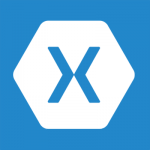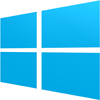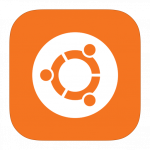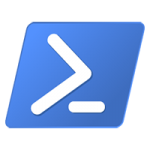Tag Archives: iOS
Xamarin is now included for free in Visual Studio
Starting April of 2016, Visual Studio now includes Xamarin for free. This is the case for every edition of Visual Studio, including Visual Studio Community Edition, which is free as well.
With Xamarin you can develop and publish native apps for iOS and Android using C# or F# from directly within Visual Studio with no limits on app size.
For developers that are using Mac, Xamarin Studio is now available as a benefit of your Visual Studio Professional or Enterprise subscription. Developers can use the newly-created Xamarin Studio Community Edition for free.
You can visit Xamarin’s store to download Xamarin for free. Keep in mind that, Xamarin, although free, is license restricted for bigger companies. If you want to use Xamarin you will need to comply to one of the following license terms:
- Individual license – If you are an individual working on your own applications to sell or for any other purpose, you may use the software to develop and test those applications.
- Organization licenses – If you are an organization, your users may use the software as follows:
- Any number of your users may use the software to develop and test your applications released under Open Source Initiative (OSI) approved open source software licenses.
- Any number of your users may use the software to develop and test extensions to Visual Studio.
- Any number of your users may use the software to develop and test your applications as part of online or in person classroom training and education, or for performing academic research.
- If none of the above apply, and you are also not an enterprise (defined below), then up to 5 of your individual users can use the software concurrently to develop and test your applications.
- If you are an enterprise, your employees and contractors may not use the software to develop or test your applications, except for open source and education purposes as permitted above. An enterprise is any organization and its affiliates who collectively have either (a) more than 250 PCs or users or (b) more than one million US dollars (or the equivalent in other currencies) in annual revenues, and enterprise means those entities that control (via majority ownership), are controlled by, or are under common control with an organization.
- Demo use – The uses permitted above include use of the software in demonstrating your applications.
Posted in Software News.
Tagged Android, iOS, Microsoft, Visual Studio, Visual Studio 2012, Visual Studio 2013, Visual Studio 2015, Visual Studio Community, Xamarin
Android and iOS Apps in Windows 10
Microsoft has a vision to make Windows 10 the platform for developers, giving them the ability to cover phone, tablet, PC, hybrid and console. As there is a free upgrade for Windows 7 and 8 users to Windows 10, the company has an ambitious goal to reach 1 billion users on the Windows 10 family within 3 years of launch.
Microsoft announced their effort to bring developers and their apps to Windows in 4 steps.
Make it easy for web developers to present their sites as apps. It was already announced at Mobile World Congress earlier in the year. More specifications can be found here.
Allow developers to specially prepare existing Windows apps, whether Win32, .NET WinForms, .NET WPF, or any other Windows development technology and sell them through the Windows Store. The difference between the traditional installation and Store apps installation is that it will be installed, updated and uninstalled in a clean way to motivate users to try out new apps without the fear of too much of a hassle.
Give the opportunity to Android and iOS developers to take their iOS apps and build them for windows. Microsoft has developed an Objective C toolchain and middleware layer that provide the operating system APIs that iOS apps expect. (As an example King’s Candy Crush Saga for Windows Phone being one of the first apps built this way – only a few percent of the code had to be changed in order to fully port it in Windows phone.)
Allow Android apps to run in Windows Mobile, which is an official name for Windows on phones and sub-8 inch tablets. It will include an Android runtime layer that will let them run existing Android apps (both Java and C++) unmodified. Unlike Islandwood, which will require developers themselves to recompile their software to bring it to Windows, Astoria will in principle work with any old APK, without requiring the developer to do anything but publish the app in the store, as long as the APK sticks to the APIs that Astoria will provide.
There are two aspects to Android:
- Android Open Source Project (AOSP) – a mix of GPL and BSD-licensed open source code that anyone can take and fork
- Google Mobile Services (GMS) – an ever expanding closed-source set of applications and APIs that Google develops.
Microsoft did confirm that the supported proportion of AOSP and GSM would not be 100% in Astoria, however it will offer some integration points so that developers can with minor alterations support features like Cortana (personal digital assistant on PC and smartphone). The strategy is to allow developers to use the code they already have and encourage them to make Windows apps.










